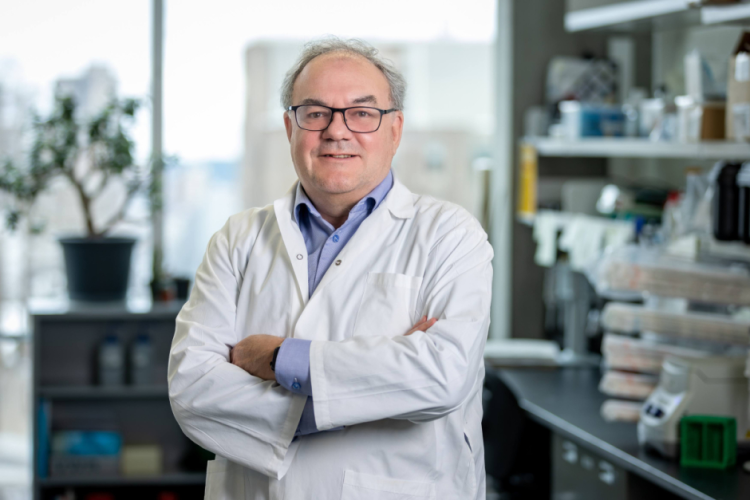A new study has uncovered promising therapeutic strategies against one of the deadliest forms of prostate cancer.
McGill University researchers at the Rosalind and Morris Goodman Cancer Institute (GCI) identified a mechanism driving neuroendocrine prostate cancer, a rare and highly aggressive subtype for which there currently are no effective treatment options.

Image by Owen Egan and Joni Dufour (Vincent Giguère, Professor in McGill's Department of Biochemistry and researcher at the Rosalind and Morris Goodman Cancer Institute).
Findings published in Genes & Development show that prostate tumours in mice became more aggressive when the protein ERRy was lost, while restoring its production in human cancer cells reversed this effect.
Prostate cancer is the most commonly diagnosed cancer among men in Canada. Tumours that stop responding to hormone therapy evolve into neuroendocrine prostate cancer in about 15 per cent of patients, according to past research. After this shift, life expectancy typically falls below 18 months.
Read more.









